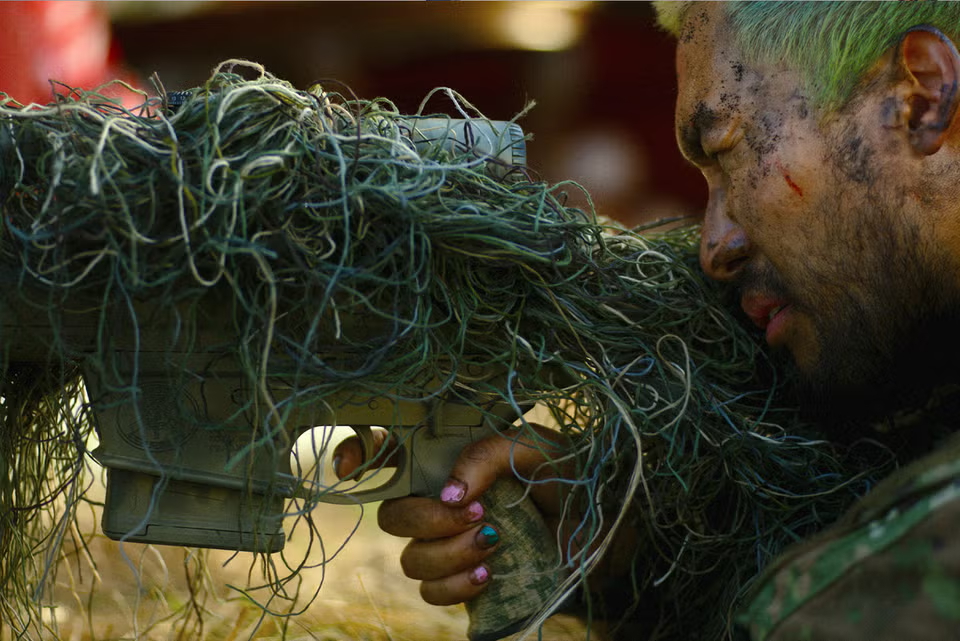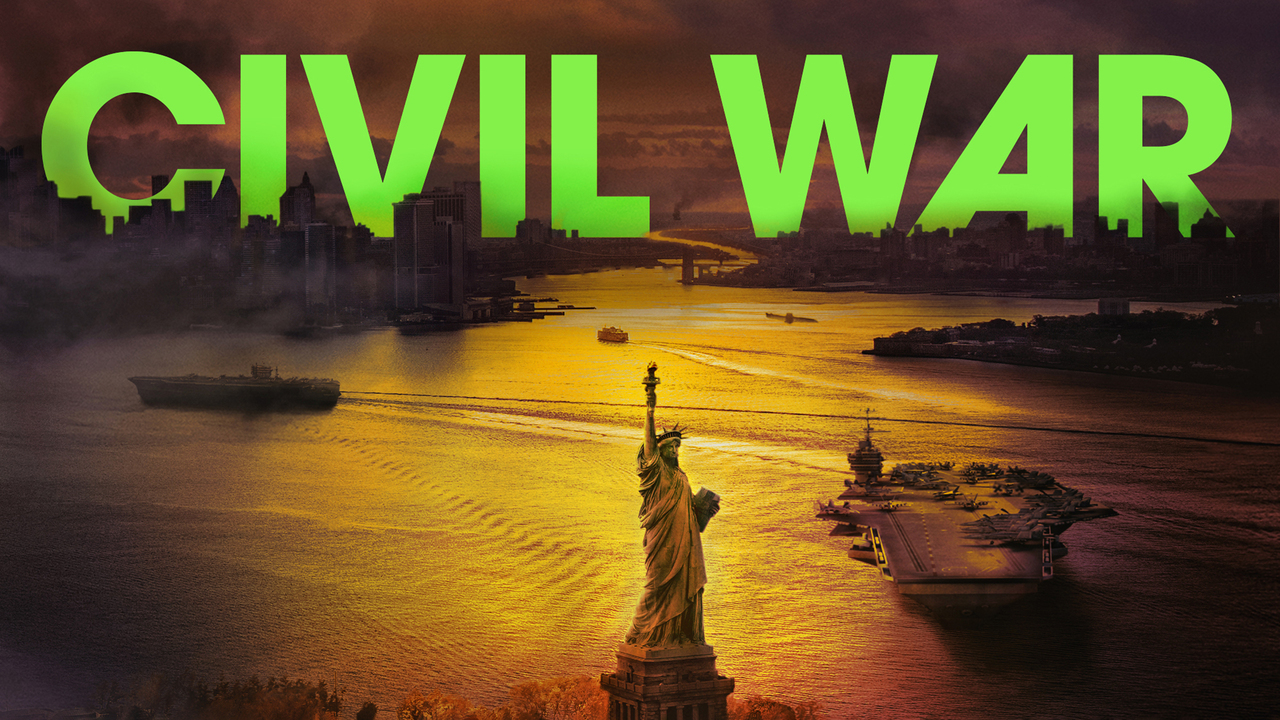During my rundown of the most anticipated movies of 2024, British filmmaker Alex Garland’s newest movie about a renegade America going into war with itself was my top pick. It’s hard to remember a movie warning us of a real and actual potential danger in a political landscape where democracy is taken for granted in key places around the globe (we can only think of the war between Russia and Ukraine, as well as the very unstable balance of power in the Middle-East). So, what would that look like, considering the intense political divide in the US ? Here’s Civil War; and unlike what we got from the Marvel Cinematic Universe, there are no righteous superheroes in this world, far from it.
Now, let’s imagine the USA under the rule of a fascist President who refuses to step down, even giving himself a third term. In reaction, multiple states begin to split and rebel against the government. This is the nightmare scenario that Garland presents, head-on. The director behind modern sci-fi classics like Ex Machina (2016) and Annihilation (2018) is known as a pretty gifted filmmaker, so there’s good reason to be intrigued.
Obviously, we’re in the not-so-distant future. The sitting President of the United States (Nick Offerman) is depicted as a fascist tyrant, holding on to power against the rules of the Constitution. We see and hear him constantly giving live broadcasts about considerable wins by American troops against the cessationist’s forces. It’s briefly explained that the states of California and Texas formed a partnership (as oddly as it sounds) to form the Western Forces, branded as rebel forces, against the loyalist states of the Center and East Coast. The country is in complete meltdown, and most citizens have chosen to either stay in refugee camps or simply move to farms in remote regions pretending this is not happening.
We witness the war not from the POV of soldiers, but from the members of the press. Lee (Kirsten Dunst), Joel (Wagner Moura) and Sammy (Stephen Mckinley Henderson) are photojournalists associated with Reuters and The New York Times (at least what is left of them). All three agree to welcome a junior photographer named Jessie (Cailee Spaeny) in their small news truck headed to the East Coast. They have one key story to tell – interview the President himself before he is arrested and shot. However, they do have to hurry before the Western Forces continue their advance on Washington DC. The road is unpredictable and dangerous as they go through states filled with guerrilla soldiers still loyal to the President.

True to his talent, Alex Garland’s vision of a modern Civil War gives us chilling and intense moments. When there is war violence depicted, Garland does not shy from it; nude bodies are hanged from bridges, innocent protesters are blown up to pieces and American soldiers are gunned down left and right…even if they surrendered. One scene, in particular, is very efficient at showing us the horrors of the conflict and the evil nature of an unsupervised American soldier; it involves a certain Jesse Plemons with an M16 and pink sunglasses (an absolutely mesmerizing scene). American anarchy is merciless and it’s obvious that one life is worth a lot less in a conflict such as this. Different people are murdered across the way, but people almost seem used to it, after a long time in this conflict. Even though this is truly a war movie, the combat scenes are few in number and mostly seen or heard from a distance. Covering the story from the lens of photojournalists makes it so; we witness it almost like a photo montage.
What jumped out to me considering our main journalist main characters, is that wartime makes way for even more sensationalism. This is especially true of Kirsten Dunst’s character, a veteran journalist who covered international conflicts before the Civil War began on American soil. She confronts that reality with stoicism, almost an abnormal professionalism while teaching Jessie how to take good pictures that could make front page covers. This gives us the impression that the war has been going on for a while, and reporters witness so much horror that they slowly become impervious to it all. In other words, they still consider their work as a normal job in the circumstances.

It’s been revealed that Alex Garland was heavily inspired by the classic Vietnam War movie Apocalypse Now (1979) by Francis Ford Coppola to orchestrate the pacing of his film, and it does show. The use of transport (a truck) to get from point A to point B, multiple stops along the way that show titbits of the conflict from different angles (different war zones and obstacles), and all of this to find a man that has gone insane (the President). Civil War does a good job following this ‘slow burn’ pace, but we wish there was more shown to us at times to really grasp the gravity of the situation.
Also, without giving too much away, the ending is disappointing and weirdly edited, so manage your expectations until the very end. Garland had the opportunity to give a little more meaning to the entire conflict in the last few minutes, but he decided to take the quickest route, which was a letdown. It doesn’t help that the movie is pretty short, the story is told on the surface and fails to go deeper when it can. You left the theatre thinking that you didn’t really understand what all of this was about, as the story gives you so little to chew on.

Yeah…one last thing about that ending. Maybe I played too many video games, because I’m far from a military tactician, but the loyalists’ combat tactics did not make much sense to me. Some of the ‘enemy’ camp’s reactions led me to believe that the writers cut corners to get to the climax quicker, once again giving us the impression of a ‘half-baked’ plot.
My main point is this: Civil War remains an efficient film, even expertly made from a cinematography perspective. Although Garland’s choice of filmmaking might not be everyone’s cup of tea, especially his editing style and choice of music in horrific situations, it is visually compelling and it gets the job done. I was a little disappointed about the decision to leave the politics and motivations for the conflict aside, but that could’ve also caused more harm than good in the real world.
Critics are liking it, and it has officially become A24 Studios’ most lucrative movie in theatres after only one weekend. Fair to say that we will remember Civil War in the years to come…let’s hope for the right reasons.

FINAL GRADE: 7.5/10
